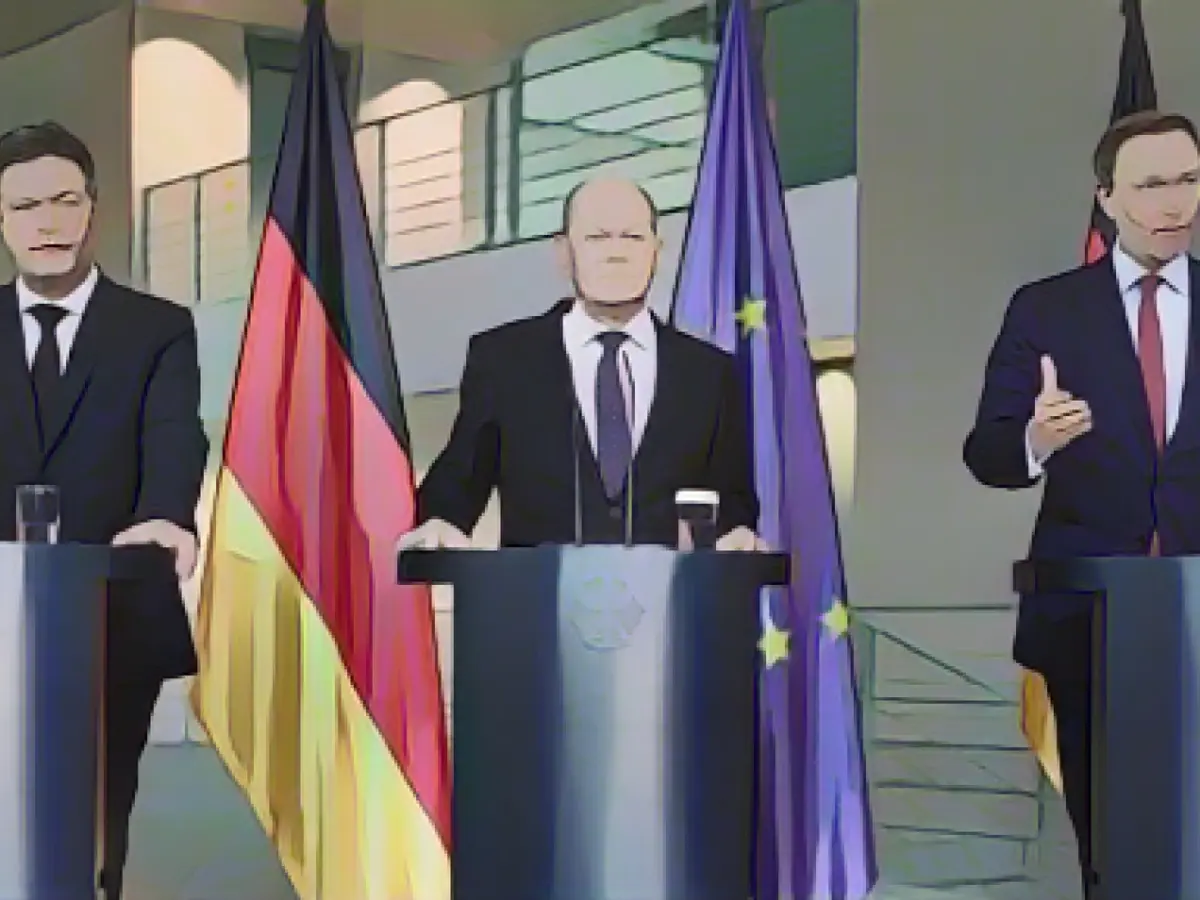Budgeting for 2024: Traffic Light Coalition Makes Sacrifices to Comply with Debt Brake - Scholz Announces Major Cuts to Climate Fund
The German Coalition Government, including the Social Democrats (SPD), Greens, and Free Democratic Party (FDP), has devised a plan to bridge a budget gap of 17 billion euros in 2024. The plan includes raising the CO2 price, reducing environmentally harmful subsidies, and significant cuts to the Climate and Transformation Fund, as announced by Chancellor Olaf Scholz on Wednesday in Berlin.
The direction of the budget follows a ruling from the Federal Constitutional Court, which necessitates that the coalition make do with significantly less money to achieve its objectives. Scholz worked closely with Habeck and Lindner, his Economics and Finance Ministers, respectively, to find a workable solution.
Post-Karlsruhe Decision Measures
The agreement includes raising the CO2 price to 45 euros planned by the previous government, a five-euro increase from the originally proposed amount. Green Minister Robert Habeck underlined this at a joint press conference in Berlin. The plan also entails a reduction of 3 billion euros in environmentally harmful subsidies during 2024.
Moreover, Christian Lindner, the Finance Minister, outlined the intention to reduce the Climate and Transformation Fund (KTF) by 12.7 billion euros in 2024, with a total 45 billion euros cut by 2027. Despite these considerable cuts, the KTF will still retain a significant "total volume" of 160 billion euros, according to Scholz.
Potential Debt Brake Suspension
Chancellor Scholz did not dismiss the prospect of a renewed suspension of the debt brake if the military or financial situation in Ukraine deteriorates significantly in 2024. The Chancellor cited potential triggers as a significant worsening of the situation on the front line or a reduction in aid to Ukraine by its previous supporters.
Enrichment & Further Considerations
The German Traffic Light coalition, composed of the SPD, Greens, and FDP, found itself in a budgetary quandary due to the constitutional debt brake rule and the need to meet climate goals. A series of unfavorable events have impacted the basket of proposed measures, setting the coalition back:
- The Constitutional Court invalidated the coalition's decision to reallocate €60 billion from COVID-19 funds to fund climate projects, which dealt a significant blow to their funding plan.
- Increases in CO2 prices contribute to higher gas prices and overall energy market volatility, exacerbated by geopolitical tensions like the Russia-Ukraine conflict.
- The German government spent in excess of €255 billion on subsidies to alleviate the impact of soaring energy prices on households and businesses.
Though the coalition's efforts to implement these measures have been thwarted by political instability and lack of consensus within the coalition partners, they continue to strive to fund key climate initiatives. This situation has resulted in a necessary reevaluation of their budgetary decisions as they navigate future challenges.
Reference:








